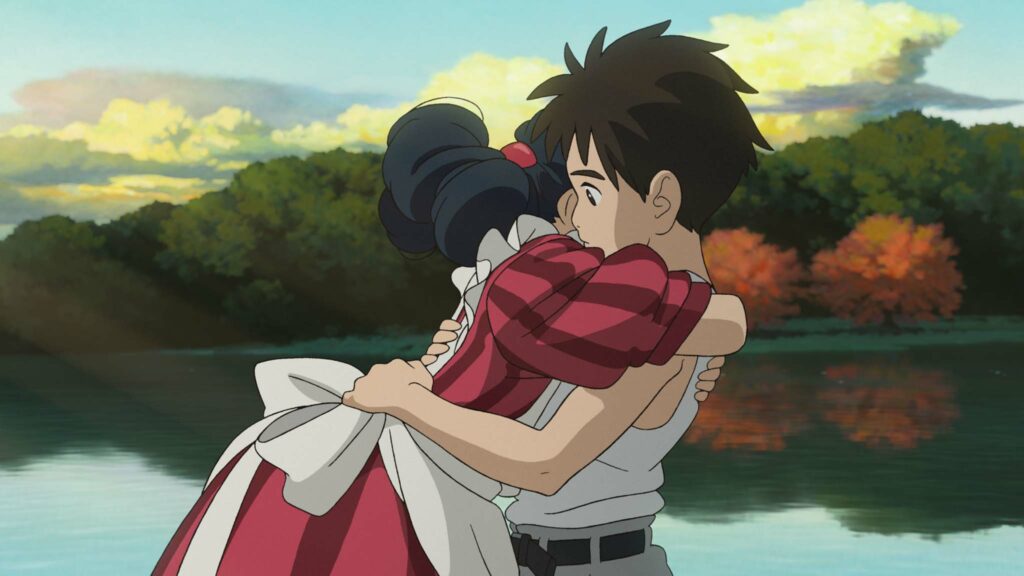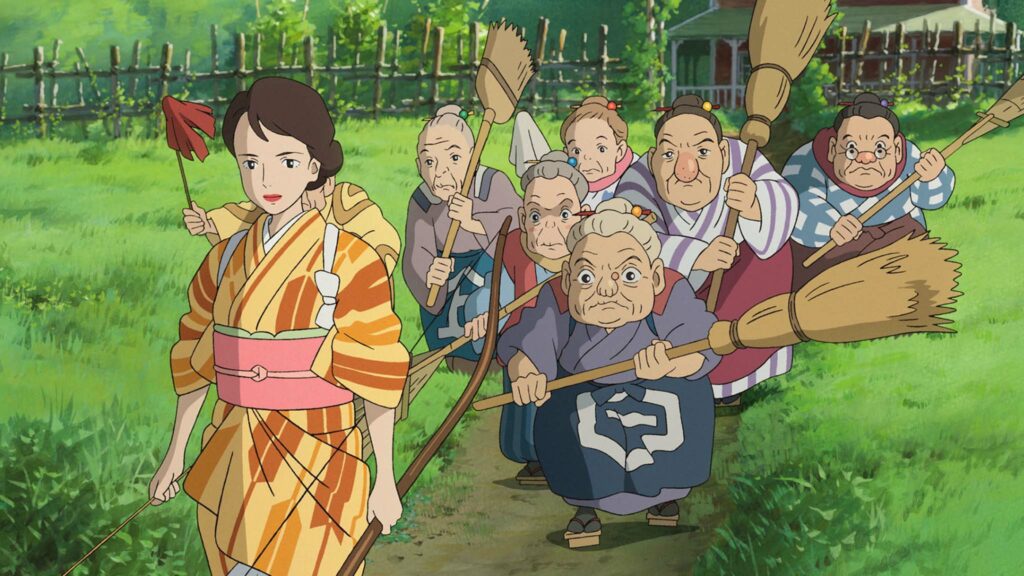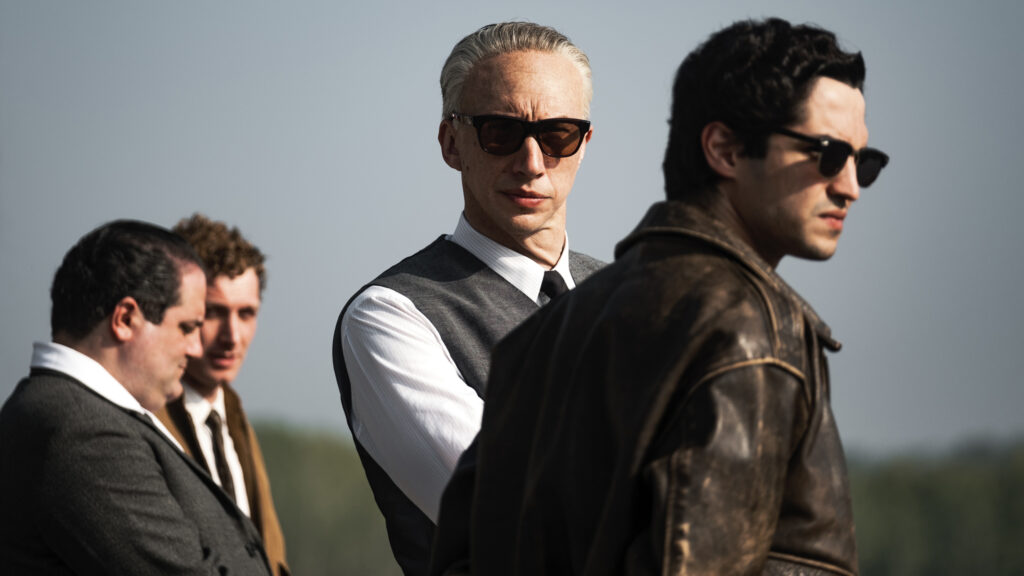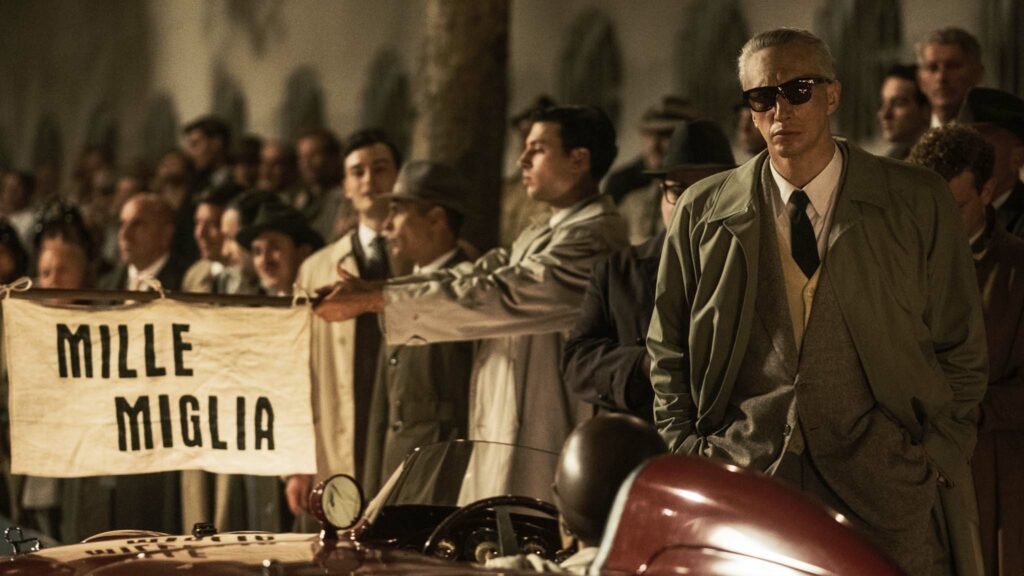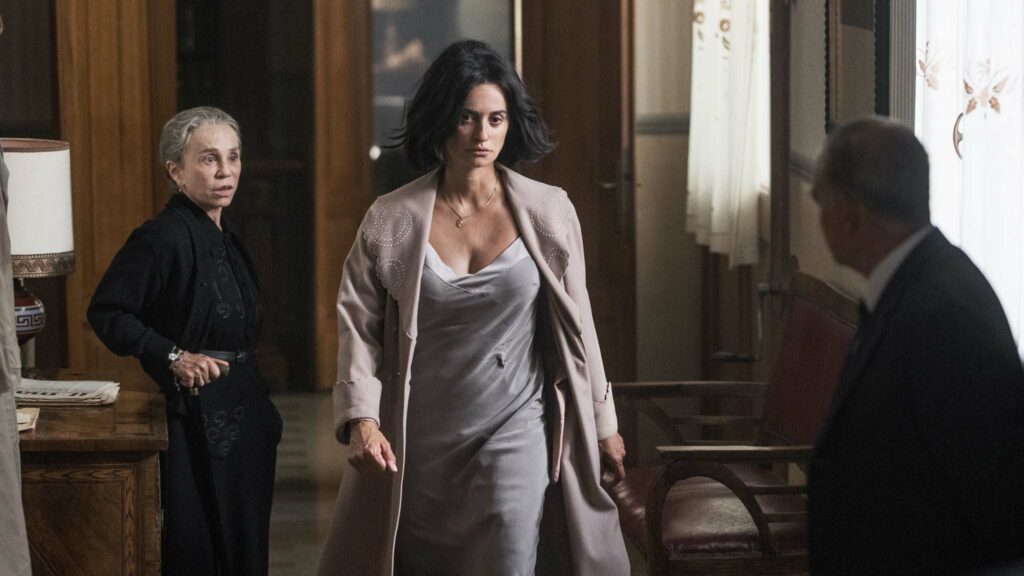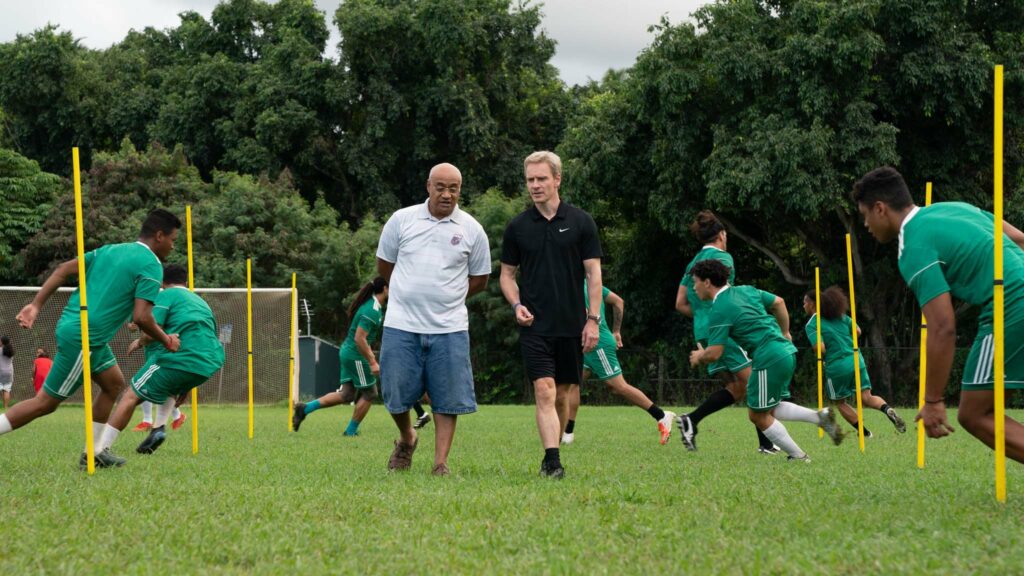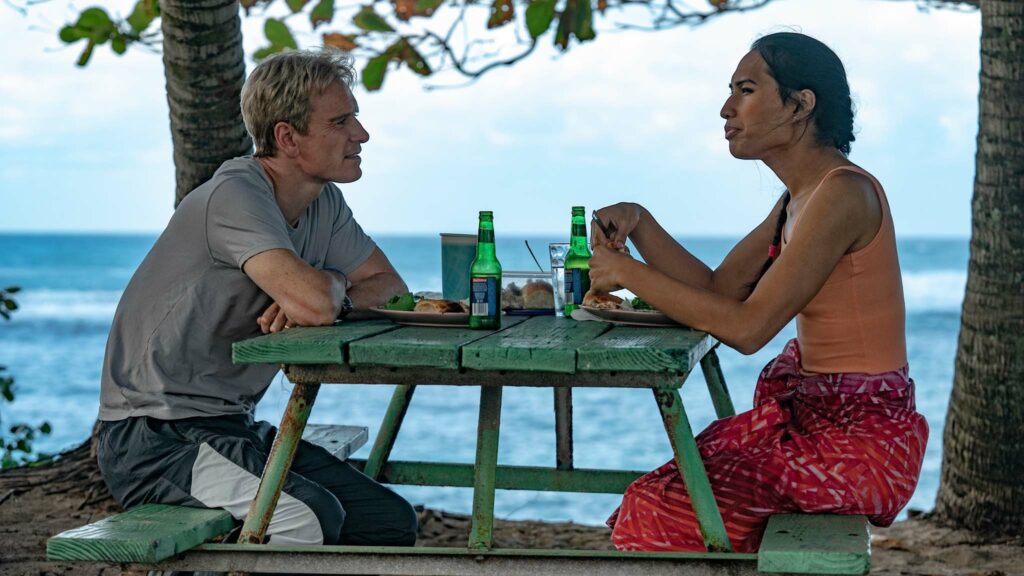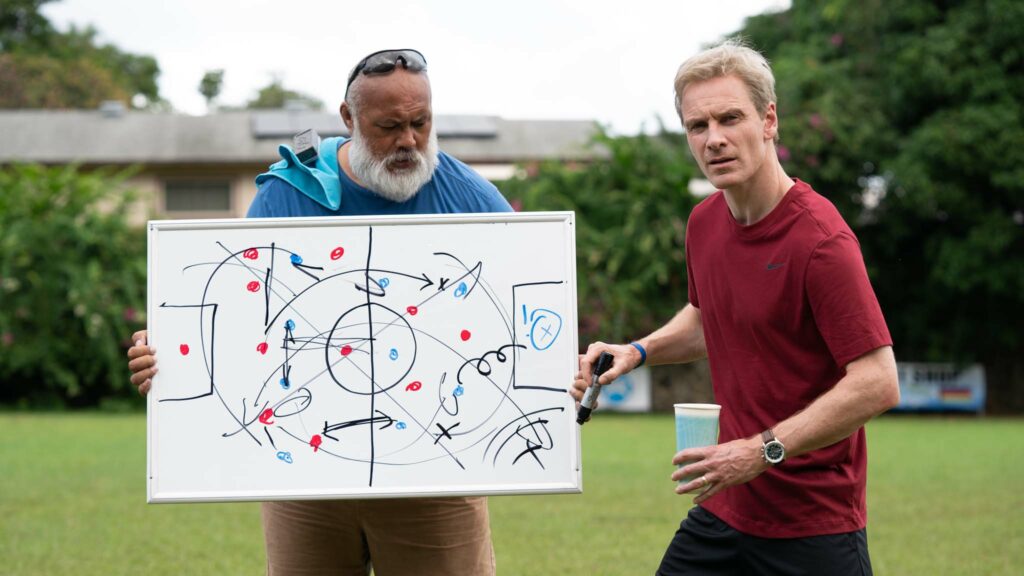Animation
The Boy And The Heron (12A)
Review: Likened to Walt Disney for his enduring impact on the world of animation, 82-year-old Japanese writer-director Hayao Miyazaki has been entrancing audiences with fantastical creations since his 1979 feature debut, The Castle Of Cagliostro. He co-founded animation powerhouse Studio Ghibli in 1985 in Tokyo and steadily built a filmmaking legacy of emotionally rich, otherworldly adventures including My Neighbor Totoro, Kiki’s Delivery Service, Princess Mononoke, Spirited Away and Howl’s Moving Castle.
Miyazaki comes out of retirement for a final hurrah with this semi-autobiographical odyssey set in 1943 Japan as Allied air raids decimate key targets during the Pacific War. The Boy And The Heron is handsomely crafted with the filmmaker’s soulful flourishes but in the midst of bidding Miyazaki a fond and teary-eyed farewell, it’s hard to dampen down feelings of familiarity and disappointment with his swansong. Striking imagery from the back catalogue replays in a final tumble down the rabbit hole led by a spirited 12-year-old boy, mourning the loss of his mother, and flocks of anthropomorphic birds.
There is an emotional disconnect in the frenetic second half as the adolescent protagonist climbs along branches of his family tree and ultimately plummets back to solid ground to confront his grief and reconnect with the living. Mahito (voiced by Soma Santoki) is haunted by the image of his mother perishing in a hospital fire. Aching loss intensifies when the boy’s father Shoichi (Takuya Kimura) marries his wife’s sister, Natsuko (Yoshino Kimura), and uproots the family to a house in the countryside tended by an army of ageing maids.
Left to his own devices, Mahito follows a mysterious grey heron (Masaki Suda) to a dilapidated tower built by Natsuko’s eccentric great uncle with the promise of finding his mother. No such supernatural encounter materialises. Natsuko subsequently vanishes and one of the maids, Kiriko (Ko Shibasaki), joins Mahito as they search the tower. They encounter the heron, a benevolent wizard and a young woman called Himi (Aimyon), who is blessed with pyrokinetic abilities. The mystery deepens as the adventurers move through the tower’s interconnected chambers and face a Parakeet King (Jun Kunimura) determined to protect his feathered kind.
The Boy And The Heron feels like the greatest hits of Miyazaki, deftly woven into a magical coming-of-age story. Signature hand-drawn animation is beautiful and counters the argument that the future of big screen animation relies on technical wizardry. No one casts a spell like the Japanese writer-director, even if his final incantation lacks some of the usual sparkle. Alongside the subtitled version of The Boy And The Heron, the film is released in the UK with English language dubbing courtesy of Christian Bale, Dave Bautista, Willem Dafoe, Mark Hamill, Robert Pattinson and Florence Pugh.
Find The Boy And The Heron in the cinemas
Drama
Ferrari (15)
Review: At a pivotal moment in Michael Mann’s biopic of one of the key figures in motor racing, Enzo Ferrari proudly raises a glass to his team of drivers and technicians and salutes the perilous sport they adore as “our deadly passion, our terrible joy”. His inspirational words come shortly after his best driver, Eugenio Castellotti (portrayed on screen by real-life racer Marino Franchitti), has been fatally injured on the Modena test track. Mann stages the gruesome scene with elan.
The horrible yet bewitching contradictions of Enzo’s words are evident in Ferrari, a stylish yet emotionally hollow dramatisation of an annus horribilis for the automotive mogul, which culminated in manslaughter charges. Screenwriter Troy Kennedy Martin can’t find top gear when his characters abandon their turbocharged creations and engage face-to-face. The machines are far more interesting than the flawed men behind the wheel. Thankfully, Mann’s picture is blessed with a fiery performance from Penelope Cruz as Enzo’s pragmatic wife, who insists her husband’s second son with another woman must not be publicly recognised with the Ferrari name while she still breathes. Adam Driver seems muted in comparison, hiding his eyes behind sunglasses for extended periods as he grapples with an inconsistent accent and his mogul’s failings as a husband.
When we meet former driver Enzo (Driver) in 1957, he faces the prospect of losing the company he has spent 10 years building with his wife Laura (Cruz). Their marriage is under strain because Enzo prefers to spend time with Lina Lardi (Shailene Woodley), the mother of his surviving son Pietro (Giuseppe Fesitine), whose existence has been kept secret from Laura as she mourns the recent loss of their 24-year-old son Dino to muscular dystrophy. When Laura stumbles upon the truth, she is apoplectic, suggesting that Enzo abandoned his family when she had already provided him with an heir.
“As it turns out, one was not enough,” coldly retorts Enzo’s mother Adalgisa (Daniela Piperno). Enzo’s personal life implodes but he hopes to inject life back into the business by assembling a winning team for the physically gruelling Mille Miglia race. His five-strong squad of drivers includes veteran Piero Taruffi (Patrick Dempsey), Peter Collins (Jack O’Connell) and exciting new arrival Alfonso de Portago (Gabriel Leone). However, arch-rivals Maserati will also enter the race and they have Stirling Moss (Ben Collins) in one of their cars.
Ferrari runs smoothly on four wheels and Mann stages racing sequences with brio including a jaw-dropping conclusion to the Mille Miglia. Once engines are idle, we struggle to care about anyone except for Laura, who is the driving force behind the brand’s survival in testing financial times. Co-star Driver remains safely buckled in the passenger seat.
Find Ferrari in the cinemas
Comedy
Next Goal Wins (12A)
Review: Sporting underdogs frequently have their day when scriptwriters house-train facts into feelgood fiction. America’s ice hockey team defies the odds to outskate the Soviet Union’s formidable reigning champions at the 1980 Winter Olympics in Miracle; Jamaica’s inexperienced four-man bobsleigh team run hot at the 1988 Winter Olympics in Cool Runnings; Irish-American boxer James J Braddock returns to the ring after breaking his dominant hand in Cinderella Man. Oscar-winning writer-director Taika Waititi applies the crowd-pleasing brushstrokes to his comedy drama inspired by a 2014 documentary about the efforts of American Samoa’s national football team to recover from a 31-0 defeat to Australia in a qualifying match for the 2002 World Cup.
Appearing on screen as a zany preacher, Waititi promises “a tale of whoa!… with a couple of embellishments along the way”. He largely fulfils these modest ambitions with a conventional clash of cultures on the US territory interspersed with wholesome life lessons about a team only being as strong as its weakest link. Michael Fassbender scores a couple of own goals as the exasperated straight man at the centre of this fanciful folly but a reliable supporting cast are more sure-footed when it comes to netting laughs.
Ten years after humiliating defeat on an international stage, American Samoa’s national football team languishes at the bottom of the world rankings. Goalkeeper Nicky Salapu (Uli Latukefu) has turned his back on the sport after his heroic efforts in 2001 and the head of the US territory’s football federation, Tavita (Oscar Kightley), issues a heartfelt plea for external help to turn around American Samoa’s (mis)fortunes. Disgraced coach Thomas Rongen (Fassbender) is encouraged to accept a position transforming the squad into a cohesive group capable of scoring one goal.
Self-confidence exceeds Rongen’s list of accomplishments (“I’m not God but I may as well be because I perform more miracles than him!”) but every triumph is overshadowed by his volcanic temper and shameful outbursts on the touchline. Estranged from his wife Gail (Elisabeth Moss) in a land he doesn’t fully comprehend, Rongen attempts to bend the players to his will with the help of ineffectual ongoing coach Ace (David Fane). He meets fierce resistance from the squad led by talented forward Jaiyah Saelua (Kaimana), who intends to make history as the first transgender player to compete in a World Cup qualifier.
Next Goal Wins hobbles off at full-time with inconsistent pacing and tone despite solid efforts on the pitch from Kightley and Kaimana. The romantic tug of war between Fassbender, Moss and her new partner (Will Arnett) is an unnecessary distraction from heart-warming scenes of Rongen engaging with local traditions. A running time closer to a 90-minute football match would have prevented Waititi’s tale of whoa from finishing the season as a mid-table so-so.
Find Next Goal Wins in the cinemas


